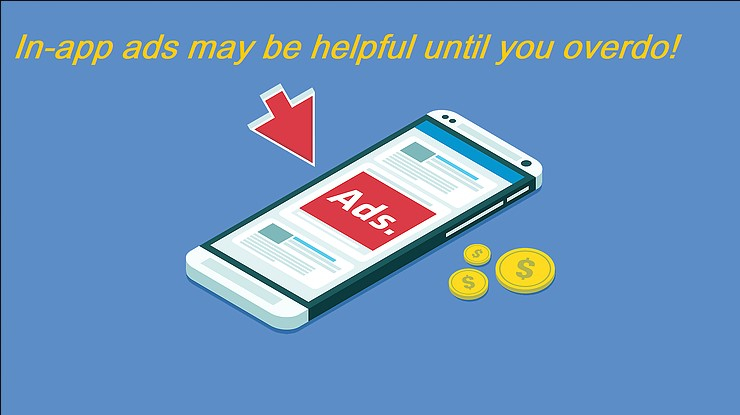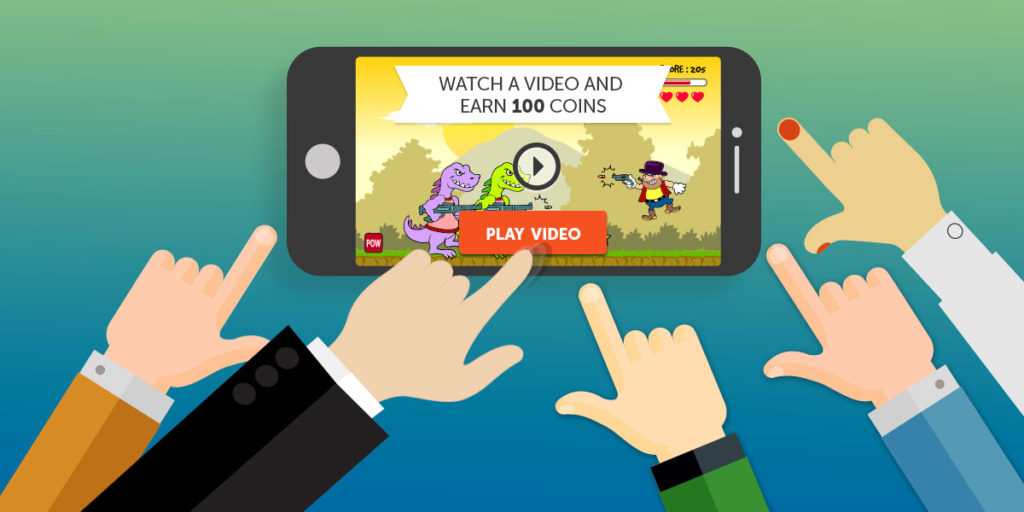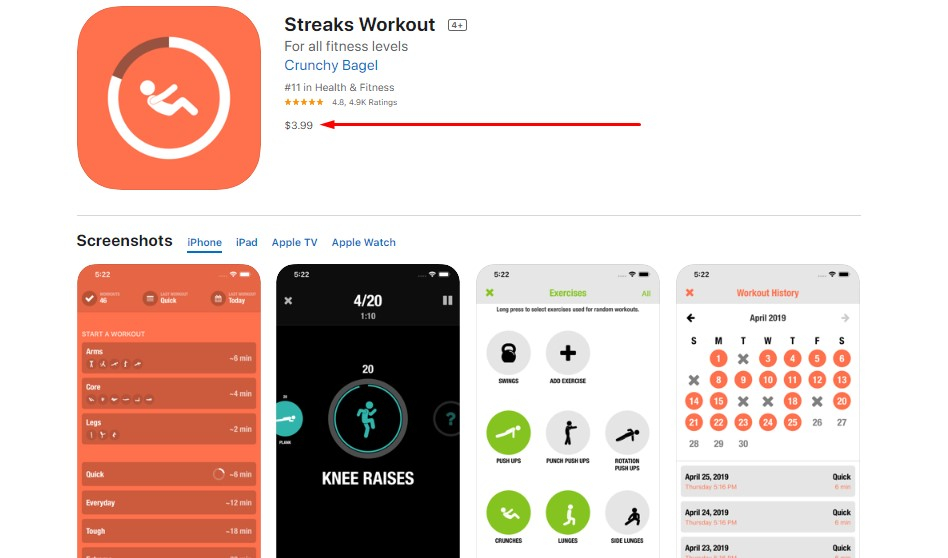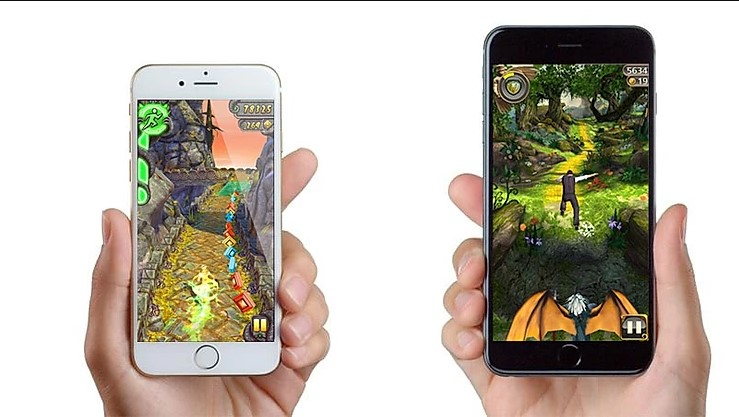Best Ways To Monetize Mobile Apps
Along with the increasing number of smartphone users, the mobile application market is growing steadily. People prefer mobile apps because they are fast and functional, modern, productive, and interactive. That is why the majority of businesses own mobile apps.
If you also consider developing or already own one for your business, then you are in the right direction. A mobile app helps your customers to interact with you like never before. And yet, there is something greater an app can do to invest in your business success. Wonder what it is? - mobile app monetization.
There are many ways to monetize mobile apps. If you have a question “How to monetize my mobile app?”, then you are in the right place. In this article, you’ll get all the answers to your questions related to mobile app monetization. Let’s go!
Ways To Monetize Mobile Apps
Once you have made the right decision of app monetization, you face another challenge: how do you monetize your mobile app? You may even feel confused in the forest of mobile app monetization techniques. However, below, you can find the list of 7 best mobile app monetization models due to which you make a sustainable income out of mobile app development.
№1 In-app Advertising
Advertising in apps is probably the most common and useful among all the monetization models for mobile apps. Guess why? Marketers try every possible way to reach their target audience. So, where else people may be reached faster than in apps.
Ads on your app can be banners, text, or video ads, etc., but whatever it looks, it should be a native ad. To make a long story short, the ads on your app should be related to the scope. It provides some guarantee that your app users may be interested in that ad.

There are two approaches to ads - sponsorships and platform ads. Sponsorship is an ancient technique of cooperation which is still in use. You find a sponsor for your app and after negotiation, place their ads on your app. You promote other business, as a result, generate revenue. Therefore, the platform ads are more common recently. In order to include such ads on your app, you must connect it to any ad platform (Some of the best app monetization networks are Admob, Facebook Audience Network, Unity Ads, In Mobi, etc.). Once you choose the place inside your app where the ads may appear, these platforms select ads to show and payment.
Usually, the host app gets ad revenue for Cost per Thousand Impression, per Click, and Action. Although Cost per Thousand Impression is the cheapest ad, it’s also the most effective, because many people may see the add, but not all of them will click on it.
As a rule, apps that include advertisements are free. This is something to consider while placing ads. Sometimes, ads make people nervous so that they may uninstall your app. To avoid such an unpleasant situation, you need to keep limits and not to overdo advertisements.
№2 Rewarded Ads
Rewarded ads are a perfect choice for mobile game monetization. It’s beneficial for three sides: for you as an app owner, for the advertisement producer, and for the user. Wonder how? Let’s find out.

Imagine you introduce a mobile game application where some ads are placed. These aren’t ordinary ads. Watching every ad, users receive some coins or points to unlock more levels of the game. As a result, you get revenue from the advertising, the ad host reach a wider audience, and the user has effective game experience.
№3 Premium Apps
Premium apps are paid; that’s why they should be authoritative and trustworthy. People don’t pay for ordinary apps they can find everywhere. Your application should have a niche and be useful for the target market. Otherwise, it will be worthless.

If you develop a unique premium mobile app, let people know about its benefits. Create a free version of the app, as well. Here you may include features similar to the premium version in order to make people understand what they should pay for.
№4 Freemium Apps
Free + Premium = Freemium
With this model of applications, you offer mobile users to download the app free of charge. People may easily install freemium mobile apps without spending a coin. However, free installation presents a limited set of features. Special in-app purchases are required in order to unlock more features.
№5 Subscription
The apps that are based on subscription are similar to freemiums. Such apps are free, yet, irritating. Imagine you’re listening to music on your favorite app and suddenly the song is playing randomly. Or another example I experienced, a dictionary application offered ads after every single click.

The subscription-based apps suggest the best solution for those who cannot deal with such staff. For a monthly subscription fee users upgrade the app and earn extra benefits such as ad removal, unlimited songs, and many more features related to the application.
№6 Affiliate Program
Mobile app affiliate programs are similar to partnerships since they don’t have a higher level of commissions. Google, Microsoft, Apple, and other major companies introduce affiliate programs that are open to app developers.
These are automated electronic programs that involve an advertiser and a webmaster. As an app developer, you are a webmaster who places the ad in a specific location on your individual application. This ads, that link to the advertiser’s website or application, are affiliate links.
You may join different affiliate programs and select the apps you want to promote. To earn easy commissions, you need to find out and promote the best apps that are also related to your own app.
№7 Strong Code
You get another advantage if you are the developer of your own application. While creating any application, you may develop your own code which proves to be successful. You may sell this strong code to other brands who re-skin the app. It means they change the graphics of the app, yet the code is maintained. As a result, you get extra revenue from your app, and still, further, its user experience is saved. In the example introduced below, you may see how the well-known game Temple Run was re-skinned for Temple Run Oz.

You may also like to sell some codes of your application, as for example the map generator code or something similar. However, you may just present such useful codes to help your colleagues. Surely, you’ll receive blessings.
To Sum Up
Now you are well aware of how excellent a mobile app can be to your business. It allows you to expand your brand and connect with new customers. A mobile app may even serve as a small branch of a business or a marketing platform. It’s a platform, a means through which e-commerce businesses sell their products and services.
If you try to monetize a mobile app using more than one technique, it may work even better. However, remember to avoid over monetization in order to preserve the authority of your app. Take advantage of the strategies mentioned above for monetizing your mobile app and evidence your business generating more app revenue than ever.
In the end, do not forget to let me know which method you like more and prefer to use to monetize your app!